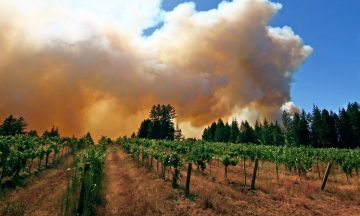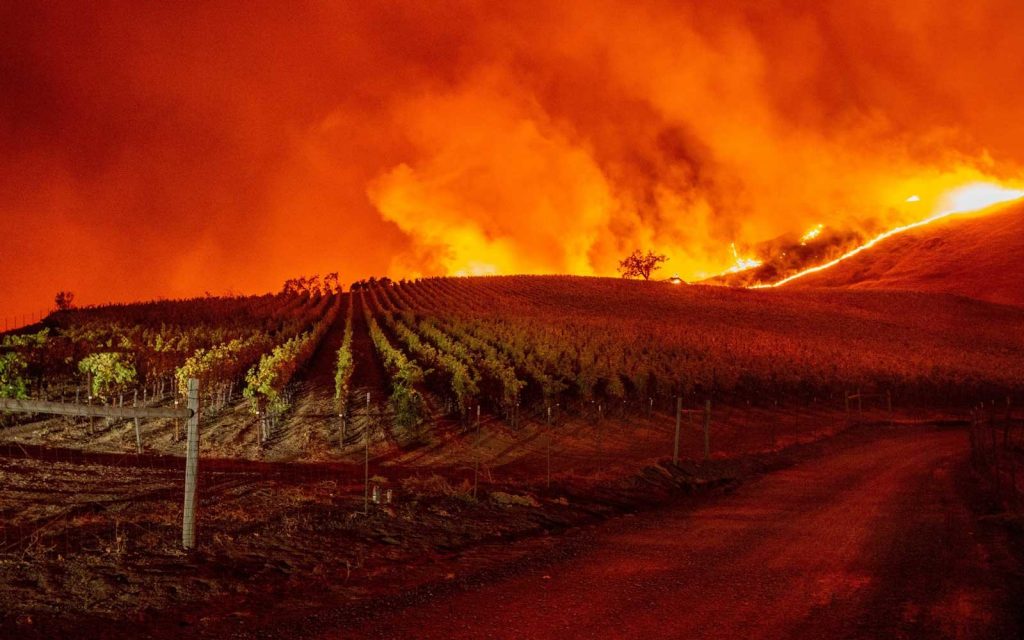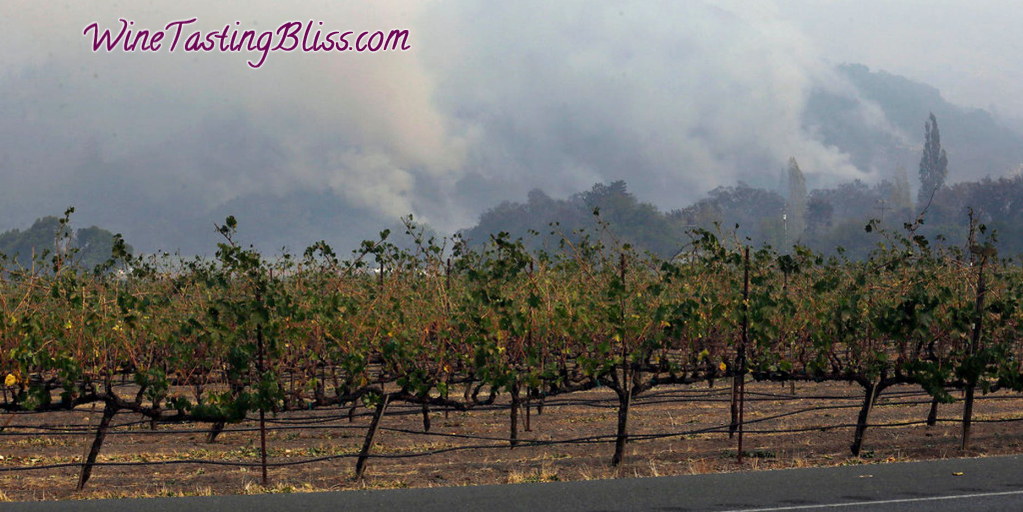With the west coast of the United States experiencing one of the worst wild fire seasons in history, is the 2021 wine grape harvest doomed to be tainted by smoke?
Large, barely-controlled fires have burned hundreds of thousands of acres of land up and down the west coast, affecting most of the prime wine grape growing regions. Air quality measurements of smoke concentrations became an everyday part of the weather report. The Caldor and Dixie fires in California; the Bootleg, Jack, and Joseph Canyon fires in Oregon; and the Lind, Lick Creek, Cedar Creek, and Cub Creek fires in Washington State have each had their turn in the news. Firefighters have gone to great lengths to battle and subdue these fires, but the oppressive heat and high winds have combined to create monstrous walls of flame that are nearly impossible to overcome. These fires have had enormous impacts on people and property. One tiny sliver of this impact is the wine industry, as wine grapes are ripening now, many ready for harvest. Is this vintage doomed?
 The smoke from these wild fires can stealthily affect wine grapes. This is called “smoke taint.” Chemical reactions occur that are difficult or impossible to reverse. We all remember our high school chemistry class (don’t we?), so we understand how the aromatic phenols from the burned wood smoke particles pierce the grape’s skin and bond with the sugar molecules within. Once this binding takes place, everything seems normal. The smell and taste of the grape juice is normal and nothing seems out of the ordinary. Unfortunately, when the juice ferments into wine, the acids created can break that phenol-sugar bond and nasty things happen to the new wine. Even the enzymes in our saliva can break this phenol-sugar bond if it makes it through the fermentation and bottling process. Picture sniffing and tasting a week old ash tray.
The smoke from these wild fires can stealthily affect wine grapes. This is called “smoke taint.” Chemical reactions occur that are difficult or impossible to reverse. We all remember our high school chemistry class (don’t we?), so we understand how the aromatic phenols from the burned wood smoke particles pierce the grape’s skin and bond with the sugar molecules within. Once this binding takes place, everything seems normal. The smell and taste of the grape juice is normal and nothing seems out of the ordinary. Unfortunately, when the juice ferments into wine, the acids created can break that phenol-sugar bond and nasty things happen to the new wine. Even the enzymes in our saliva can break this phenol-sugar bond if it makes it through the fermentation and bottling process. Picture sniffing and tasting a week old ash tray.
 Once smoke has reached a vineyard, dramatic countermeasures are required to rescue any value from the year’s crop. Certainly, blowing the dust off of the grapes as soon as possible helps, but those nasty phenols work pretty fast. Winemakers can take some steps during the fermentation process to mitigate this damage. The problem can be reduced by extracting the phenols by absorbing them with activated charcoal or filtering the wine, either by using fine-pore mechanical filters or reverse osmosis. Winemakers can also lead our palates in a different direction, by emphasizing characteristics that mask the smoke taint. Think fruit-forward or tannic wines. If all else fails, the winemaker can always pivot and make something else out of the juice, like distilled spirits which lose the smoke taint during the distillation process.
Once smoke has reached a vineyard, dramatic countermeasures are required to rescue any value from the year’s crop. Certainly, blowing the dust off of the grapes as soon as possible helps, but those nasty phenols work pretty fast. Winemakers can take some steps during the fermentation process to mitigate this damage. The problem can be reduced by extracting the phenols by absorbing them with activated charcoal or filtering the wine, either by using fine-pore mechanical filters or reverse osmosis. Winemakers can also lead our palates in a different direction, by emphasizing characteristics that mask the smoke taint. Think fruit-forward or tannic wines. If all else fails, the winemaker can always pivot and make something else out of the juice, like distilled spirits which lose the smoke taint during the distillation process.
So what can we expect about the 2021 vintage? Unfortunately, it is too soon to know. The few laboratories that can perform the complex analyses for smoke taint are so overwhelmed by demand for their services that most winemakers will be forced to make their own decisions without the any help science. Best case: the unseasonably warm weather and overcast from smoke will produce outstanding wines that will be a bright spot in our memory of this otherwise challenging year. Worst case: we can have some fine brandy in a few years. Our fingers are crossed.
About the Author: John grills a mean steak and is always in the market for another wine fridge. Believes that if a winery has more than 10 employees, it's probably too big. Buys wine faster than he drinks it, but who cares?



Hi John – hope you and your family are doing well! I just love the picture of the lab testing for smoke taint – with Agilent equipment! I’ve been with Agilent for 17 years now and can spot them anywhere 🙂 Love reading your newsletter and staying in touch.
Take care!
Vickie Eckert